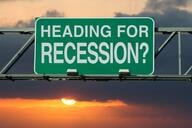You have /5 articles left.
Sign up for a free account or log in.
There is no shortage of jokes about the United States having too many lawyers. If there are any corollaries about law schools, the punch lines are falling on deaf ears at a host of institutions that have plans to open law schools.
Since 2003, at least seven new law schools have opened, and several more are on the way, including three that were announced at Drexel and Elon Universities and Mills College. Officials at some of those institutions said the new law schools are not just adding more desks, but will fill particular niches. Student demand suggests that the new schools are welcomed.
Drexel University doesn’t have a faculty yet for the law school that will open next fall. But 325 applications have poured in in the last month. Carl Oxholm, senior vice president for the Drexel Law Center, noted that, while law schools have opened in recent years, none has been at a “nonprofit, top-tier, doctoral granting private institution” like his.
Oxholm said that law schools generally have not responded meaningfully to a 1992 study by a committee appointed by the American Bar Association to find how law schools can churn out better lawyers. To incorporate some of the study’s findings, Drexel’s law school will require every student to do a six-month externship where they will be encouraged to reach beyond the traditional law firm job. “There is more to law,” Oxholm said. Students have to learn “how businesses and environmental engineers rely on lawyers, about intellectual property policy.”
Oxholm says the notion that the country simply does not need more lawyers is shortsighted. “The Baby Boomers are getting old,” he said. “The legal problems they’re going to have are going to be astounding.”
Elon University will also open a law school next fall, and Dean Leary Davis can’t wait. “We really like lawyers,” he said. “And there’s probably no greater responsibility than doing something special with a new law school.” Davis said the law school will focus on students’ personal as well as professional development.
In the last 30 or 40 years -- the last explosion of law schools was in the 1970s -- “competence has been equated with knowledge,” he said, and skill courses and clinical opportunities have increased. But, Davis said, “we see that we have lawyers who seem to have good knowledge and skill, but still don’t give timely, affordable, good legal services.”
Davis said that to produce responsible, effective lawyers, law students must also develop personally. So Elon will have “executive coaches,” who Davis said will help students battle against “dark side traits,” he said, like lack of discipline, procrastination and perfectionism.
Davis also noted that, while some states have an abundance of lawyers, North Carolina has the second lowest total per capita. He said that nearly half of all first-time takers of the bar exam in North Carolina graduate out of state. “In an information society, we need the assistance of lawyers,” Davis said.
John A. Sebert, the consultant on legal education to the American Bar Association, said that new law schools have generally been started by for-profit or religious institutions, or in states that perceive a dearth of lawyers. Liberty University School of Law, which opened in 2004, is one of the young religiously affiliated schools. On the blog of Bruce W. Green, the dean of the Liberty law school, the April 8, 2003 entry points out that the opening of law schools has not kept pace with population growth.
Still, some people, and not just bankers in need of lawyer jokes, wish there were less need to open more law schools.
Robert J. D’Agostino, a professor at the John Marshall Law School, thinks that, while the job market may suggest a need for more lawyers, an unfortunate trend of lawyers and judges effectively “becoming legislators,” he said, is pushing the need for more lawyers.
D’Agostino pointed to high profile class action suits – often against gun and cigarette manufacturers – where lawyers have “attempted to legislate by running companies out of business. It’s expanding tort law to blend into the legislative arena,” he said. “We had to have the vaccine companies threaten to pull out of the country” before the government stepped in, he said, referring to cases in which a small number of people adversely affected by a useful vaccine stood to win massive amounts of money in court.
California already has 19 law schools, but Mills College is about to begin a market research study to see if it should add another. Renee Jadushlever, a spokeswoman for Mills, said a law school would focus on “alternate ways” to resolve legal disputes rather than “just head first jumping into” litigation. She added that, though the undergraduate college is for women, and the graduate and professional schools are coed, the law school would have a special focus on opportunities for women in law.
D’Agostino noted that more law schools don’t necessarily result in a corresponding increase in lawyers, as law is an entrée to many professions. One thing, he added, is clear: If they are reputable, new law schools will not lack applicants. John Marshall had long been state accredited, but last year was accredited by ABA. “Our applications quadrupled,” D’Agostino said.




